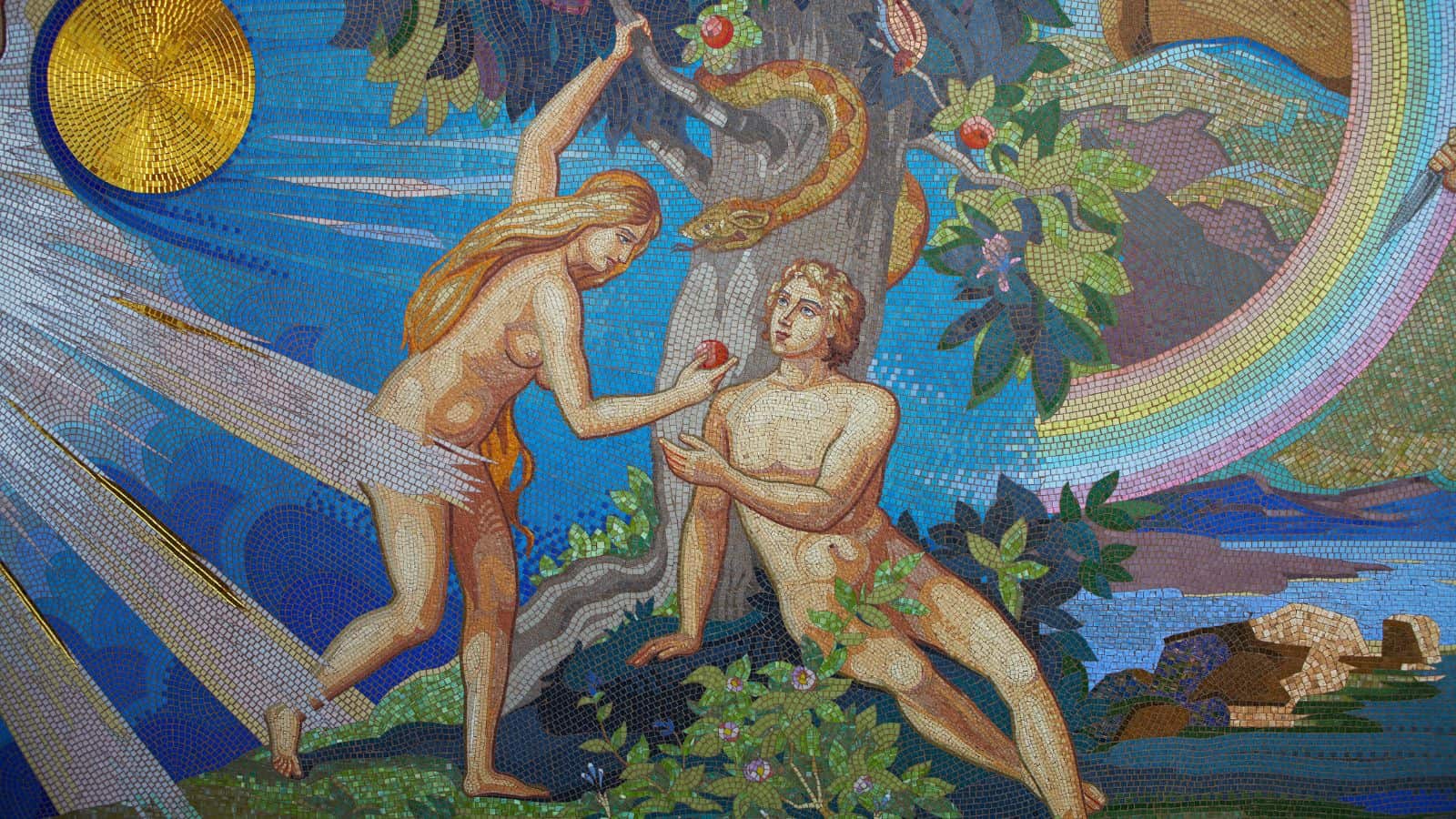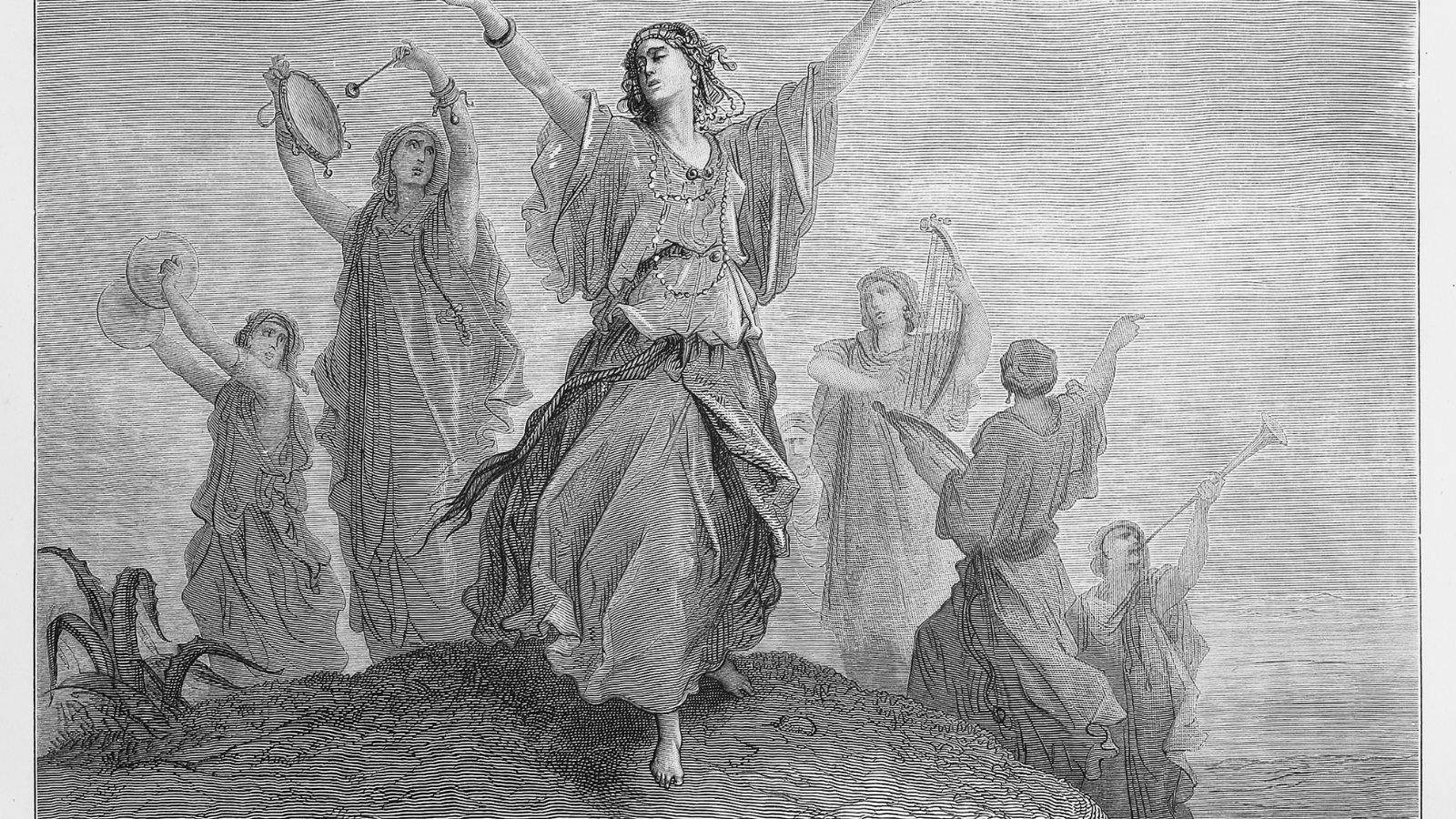The Bible is the foundational text for both Judaism and Christianity, and it contains many messages of compassion, love, generosity, and spiritual commitment. However, it also promotes ideas that seem sexist and male-dominated in our more equal and progressive modern society. Here, we describe 20 stories or themes from the Bible that are too patriarchal for today’s world.
The Subordination of Eve

In the original creation story (Genesis 2:18-23), the story of Adam and Eve has a passage that describes Eve as being created from Adam’s rib, suggesting her secondary status and dependence on him. The text reads that the Lord said, “It is not good for the man to be alone. I will make a helper suitable for him,” implying that women are merely accessories or servants!
Husbands are in Charge

According to Bible.com, Ephesians 5:22-24 instructs, “Wives, submit yourselves to your own husbands as you do to the Lord.” This reinforces harmful traditional stereotypes about marriage and puts husbands above their wives in terms of authority. It’s almost as if the text was written by ancient men who wanted a divine way to control the women in their lives…
Women Can’t Participate in Church

1 Corinthians 14:34-35 states that if women want to inquire about something, they should ask their own husbands at home because it is indecent for a woman to speak in church. This seems unfair and overly restrictive, suggesting women should be submissive, ashamed, and without their own voice. Modern society certainly doesn’t approve of such sexist religious ideas.
Women as Bargaining Chips

The troubling story of Jephthah in Judges 11:29-40 states that he vows to God to sacrifice the first thing to greet him from his house if he is victorious in battle. Bible Ref reports that his daughter emerges first, and he, bound by his oath, sacrifices her right to marriage or children. She spends 2 months weeping about this, yet her father is still hailed as a martyr!
Women Cannot Be Priests

Unsurprisingly, given the last point, the Bible forbids women from being religious leaders, such as priests. The instruction is given specifically in The Book of Numbers 3:5-7; priestly roles and duties are strictly reserved solely for men of Aaronic descent. Although Catholic priests can still not be female, many women from more modern Christian denominations now have roles in church leadership.
Blaming Eve for the Apple

The creation story’s sexist narrative continues when the entire blame for the supposed ‘downfall’ of mankind is put squarely on Eve’s shoulders. Despite the symbolic apple being intentionally put there to tempt her and Adam, no one questions God’s manipulative behavior and instead points the finger at Eve, painting women as weak, sinful, and untrustworthy.
Restrictions on Women’s Speech

OpenBible confirms that 1 Timothy 2:11-14 reads, “Let a woman learn quietly with all submissiveness. I do not permit a woman to teach or to exercise authority over a man; rather, she is to remain quiet.” Proverbs 31 also states that a wife should be silent and obedient, and the Bible frequently implies that a woman’s value lies in her domestic duties and deference to her husband.
Inheritance Rights Favor Sons

As was common in olden times, the wealth was not equally distributed, and sons were favored to inherit land, titles, and money over daughters. The Book of Numbers 27:1-11 outlines inheritance laws that favor sons over daughters, with God instructing the passing of fortunes to uncles first, then the next closest paternal relatives within their clan. This places women at a constant disadvantage.
The Ordeal of the Bitter Water

According to the Bible, a married woman who is suspected of infidelity must undergo a bizarre and humiliating ritual involving drinking bitter water, which is supposed to cause miscarriage if she is guilty. Conveniently for men of the Christian faith, there is no corresponding test for a husband’s infidelity. This double standard highlights long-term patriarchal control over women.
Treatment of Widows

A wife who has lost her husband is portrayed as weak, vulnerable, and dependent on outsiders in The Book of Ruth 1:11-22. The story features two widows, Naomi and Ruth, and Naomi says, “You have shown kindness to me and to my dead husbands. May the LORD grant each of you a husband,” implying that there is no worth or financial security for women without a man.
Limited Role in Public Life

Throughout the Bible, women are rarely depicted in positions of public authority or leadership. Judges, prophets, and kings are almost always male figures, reinforcing the sexist idea that men are better suited for positions of power and public influence. There are few exceptions to this (besides Deborah, the priestess) and a complete absence of female military leaders.
Focus on Virginity

The Bible places a high value on female virginity, particularly in passages related to marriage and men who are unhappy with their new wives. Biblia says Deuteronomy 22:13–21 instructs the parents of such women to “bring out the evidence of her virginity to the elders of the city in the gate.” A near-impossible requirement that is humiliating and sexist (men didn’t have to adhere to this standard.)
Rules on Female Dress

A verse from 1 Timothy instructs women to dress modestly and not adorn themselves with expensive jewelry or hairstyles. This is said to reflect decency and propriety but ignores a person’s personal need to express themselves or feel good about their appearance. It is a way to control women and make them less attractive to anyone besides their husbands.
Women Seen as Property

In some parts of the Bible, women are referred to as possessions or property of their fathers or husbands. This language is highly patriarchal, implying that women are commodities to be exchanged or controlled, rather than human beings with their own minds and desires. In Exodus 20:17, wives are listed alongside houses and donkeys in a list of possessions not to be coveted.
Limited Role in Witnessing

In some legal proceedings outlined in the Bible, the testimony of two women is considered equal to that of one man! Thus reinforcing the harmful idea that women are less trustworthy and unequal to men, even in the eyes of the law. This is mentioned in the Mishnah, a collection of Jewish oral interpretations of the Hebrew Bible, in this case referencing Deuteronomy 17:6.
Silence on Female Abuse

Worryingly, the Bible lacks clear condemnations of domestic violence or marital rape. While some passages deal with violence in general, there is an absence of specific protections for women who are abused by their husbands. Passages like Exodus 21:20-21 focus only on men, outlining punishments for those who injure their male slaves but not mentioning violence against women.
Focus on Male Bloodlines

In a patriarchal society concerned with male lineage and inheritance, ensuring the purity of a bloodline is crucial, yet it can put women in the role of pedigree dogs or horses, simply animals to be bred from to produce the desired offspring. A focus on female virginity and an obsession with legitimate heirs is a common theme in the Bible, yet the female line is rarely mentioned.
Restrictions on Women During Menstruation

In The Book of Leviticus 15:19-33, restrictions are outlined that isolate women from society and label them as “unclean” during this natural biological process. Women who were menstruating were forbidden from having sex with their husbands or participating in religious rituals. This isolation was a form of gender-related social shaming completely beyond a woman’s control.
Uneducated Women

The Bible offers little evidence of women being formally educated in religious or scholarly subjects, with education and literacy being privileges reserved for men, typically those of noble descent or fortune. The patriarchal societies of biblical times emphasized women’s roles in the household and childcare, with education or other skills being seen as unnecessary.
Absence of Female Prophets

With a few notable exceptions, biblical prophets are most often male figures. Throughout the Hebrew Bible, prophets like Elijah, Isaiah, and Jeremiah deliver messages from God. Women are seldom seen in this role, showing that their voices were seen to be less important or perhaps that they could never be as holy or sacred as men.
Up Next: 17 Places in the U.S. Where Even Truck Drivers Won’t Stop

Truck drivers tend to be hardy souls—well-seasoned travelers who aren’t often afraid to rest up or refuel in risky locations. However, there are certain U.S. locations that even the most road-weary trucker refuses to stop at for fear of criminal activity or natural dangers. Here are 17 such locations that even experienced truck drivers approach with trepidation (or not at all).
17 PLACES IN THE U.S. WHERE EVEN TRUCK DRIVERS WON’T STOP
17 Things Guests Actually Notice Right Away About Your House

Inviting people into your home is a big deal. You may be very house-proud or house-conscious, and if you are either, you’ll likely get anxious about hosting. If this sounds like you, stop worrying and focus on the following 17 things that guests actually notice right away about your house.
17 THINGS GUESTS ACTUALLY NOTICE RIGHT AWAY ABOUT YOUR HOUSE
The 17 Unhappiest States in America

The US has hit an all-time low position in the World Happiness Index, tumbling to 23rd in 2024. However, it’s important to remember that location is an important factor; many US states are very happy, unlike the following 17 US states that appear to be the most unhappy.
